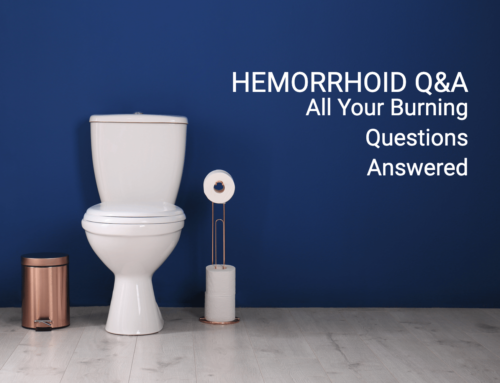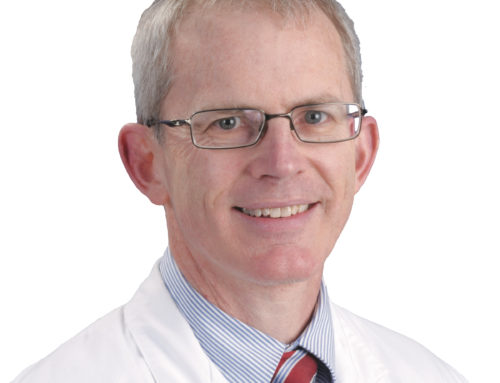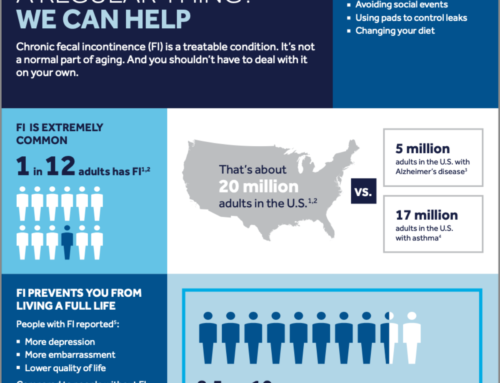 If there was a test that could find and effectively treat cancer in one appointment, would you take it? Across the country, 60 percent of people who should have a colonoscopy don’t follow through with their appointment. In Chattanooga, that number is 70 percent! It’s one reason why colorectal cancer is the third leading cause of cancer death, even though it can be prevented or treated 99 percent of the time with this simple screening.
If there was a test that could find and effectively treat cancer in one appointment, would you take it? Across the country, 60 percent of people who should have a colonoscopy don’t follow through with their appointment. In Chattanooga, that number is 70 percent! It’s one reason why colorectal cancer is the third leading cause of cancer death, even though it can be prevented or treated 99 percent of the time with this simple screening.
“I think people avoid or put off having a colonoscopy for several reasons. One is fear. They’re concerned about the bowel prep or have seen someone have a difficult time with it. Others are afraid that it’s painful, uncomfortable, or done without sedation,” says Benjamin Kellogg, MD, general surgeon with University Surgical Associates who practices in Dayton, TN. “Still others fear one of the few rare potential complications that they’ve heard can happen.”
Thankfully, colonoscopies have improved in recent years. The dreaded bowel prep is now easier to complete, and patients are adequately sedated to the point where they feel no discomfort and don’t remember anything about it afterwards. It’s completely painless. During the procedure, a long, flexible tube lets the surgeon see inside the colon and rectum. Most colon cancers start as non-cancerous growths called polyps. If a polyp is discovered, it can be removed before it ever turns into cancer. Major surgery can usually be avoided as well.
“The benefits of early detection and treatment are dramatic – we know that colonoscopy works when people take advantage of it. We also know that a person’s risk of developing colorectal cancer advances the older you get, and it’s impacted by family history,” says Shauna Lorenzo-Rivero, MD, colorectal surgeon with University Surgical Associates. “In the US, about 10 percent of the population has a first degree relative (mother, father, sibling) who has had colorectal cancer. When multiple family members are affected, your risk goes up even further.”
WHO SHOULD HAVE A COLONOSCOPY AND WHEN?
Men and women who have no family history of polyps of colorectal cancer should start at age 50, then follow up every 10 years. It’s a little more complicated for people who have a family history of the disease.
“The recommendations for people with a family history of colorectal cancer in a first degree relative are to begin at age 50 or 10 years younger than the age at which their affected family member was diagnosed, whichever comes first,” says Dr. Kellogg. “Genetics plays a very important role in the development of colon cancers, and people with a family history of these cancers are at much higher risk of developing colorectal cancer themselves, up to 2 to 4 times the risk of the general population. These higher-risk individuals should also go undergo screening every five years.”
DON’T IGNORE THE SYMPTOMS
Colorectal cancers can present in many different ways. Part of why screening colonoscopies are so important is that often times people have no symptoms at all. Even if you don’t have a family history and aren’t yet 50 but are experiencing symptoms, talk to your doctor right away. These warning signs are a reason to see your doctor:
- Blood in your stool
- Bowel never empties completely
- Constipation, diarrhea or narrower stools than usual
- Nausea or vomiting
- Persistent gas, pain, cramps or feeling bloated
- Rectal bleeding
- Unexplained weight loss
- Weakness or fatigue
LOWER YOUR RISK
If you’re thinking about other ways – in addition to screening colonoscopy – to help prevent colon cancer, studies have shown that a low-fat, high-fiber diet with daily exercise helps you maintain a healthy weight, improve longevity and decrease cancers of all types. Increasing fiber intake to 30 grams a day by eating more fruits and vegetables or taking a fiber supplement is a good place to start. Not smoking makes the biggest difference.
“The take away is that colonoscopies save lives. Colon cancer is 99 percent preventable if you do the test, find the polyp and prevent the cancer,” says Dr. Lorenzo. “Don’t let fear of the unknown or a busy schedule keep you from this lifesaving screening. One day out of your life to save your life is well worth it.”
To schedule a colonoscopy with one of USA’s colorectal cancer specialists, call (423) 267-0466.







It’s so amazing to hear that patients are sufficiently sedated so that they experience no pain and have no memory of the unpleasant bowel prep, and it is now simpler to accomplish. My mom might be getting a colonoscopy after her last check-up showed complications in her colon. She’s anxious about the possible surgery so I hope this article eases her mind since it explained about how colonoscopy isn’t so bad after all.
Thanks for mentioning that you should get a colonoscopy if you have blood in your stool. My daughter told me yesterday that she’s been having some issues with her digestion and there was blood in her stool. I’ll have to take her to the doctor to see what’s going on.
I’m so impressed with the quality of your content. The article on the benefits of regular exercise was packed with useful information and motivated me to stay active.
Best Cancer Hospital in Kakinada